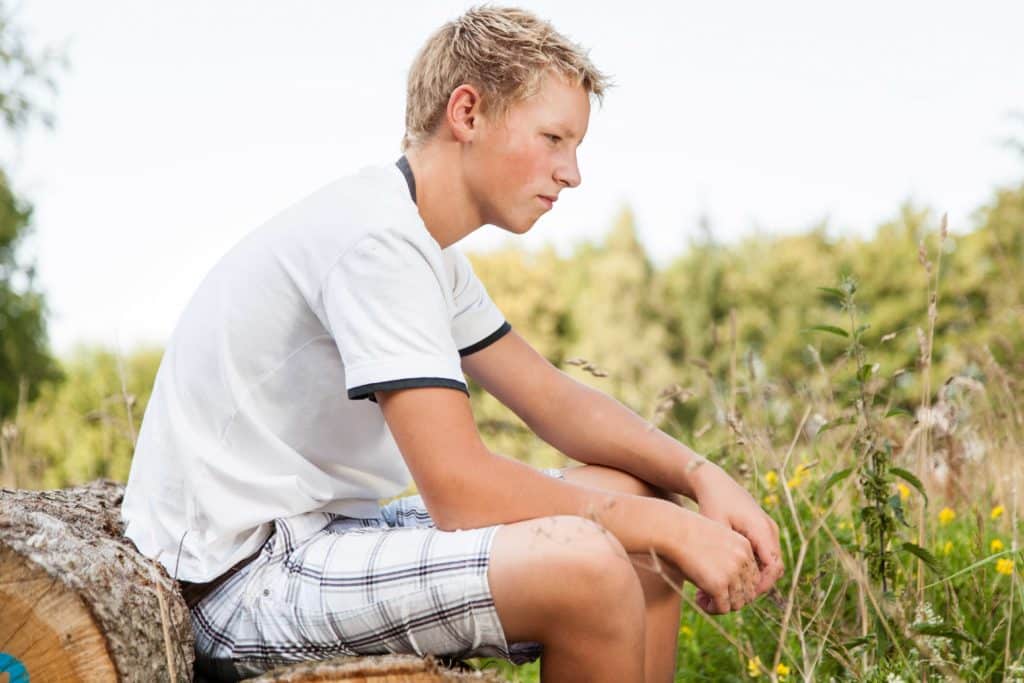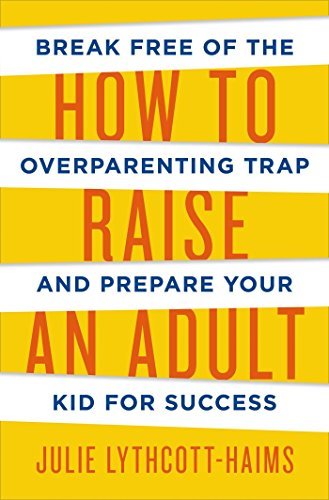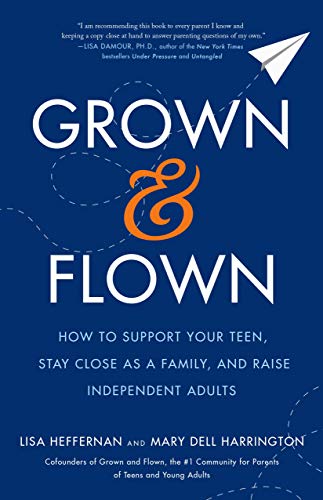Inside: Watching your teen making bad decisions can be scary and frustrating, but it also is an incredibly important part of growing up.

When our kids are little, our job is to do all the things to keep them safe.
We bubble wrap them from all the perils of the world by being their protector, provider, healer, instructor, mediator, and fixer.
We move mountains to keep them healthy and slay giants to keep them whole. It’s an all-consuming role that instinctively kicks in with a fury from the moment we become a mother. No one can prepare us for this momma-bear tendency. There aren’t words to describe such a fierce inner roar. It simply makes itself known, and then we know.
But we don’t get to play this role in our kids’ lives forever. As they transition into teens and young adults, we must let them experience hardship, suffering, failure, and harsh consequences of their choices.
What you need to know about the frontal lobe and teen choices
The teen brain is a miraculous thing, developing at rapid pace. Sometimes, however, not quite rapid enough, which is why teenagers often have problems with impulse control, decision-making, and regulating their emotions.
What you need to know is that the different parts of the brain are not always working together. For example, their prefrontal cortex (PFC) doesn’t develop completely until early adulthood, so teens must rely on the amygdala (AMG), which usually develops much earlier but focuses on emotions, impulses, and instincts–but not exactly the ones we want them to use.
Their brains are also hard at work building Myelin, which adds an insulating layer within the brain’s cellular network that helps strengthen the most essential functioning signals to communicate more rapidly and effectively.
The PFC and AMG are two distinct areas of the brain that focus on two different processes. The mismatched balance creates a confusing dichotomy that interferes with our teens’ emotional health and cognitive functioning.
That means the two parts of the brain that control decision-making, assess difficult situations, and manage risk-taking behavior are at times working against each other.
When you look at it like from this perspective, it’s no wonder why teens are poor decision-makers.
What are the benefits of consequences for teenagers?
Consequences teach teenagers to think and help them realize that their choices and behavior have negative and positive results. There are two types of consequences that are appropriate for parenting teens: logical and natural consequences.
Positive consequences are given after a particular behavior to increase the likelihood that the behavior will be repeated. Negative consequences are given after a particular behavior to decrease the possibility of it happening again.
Both are critical to your child learning that their behavior has meaning, how to manage risky situations, and how to make rational decisions. Logical parents are instituted by the caregiver and are not organic (meaning they are cause and effect.) They should be outlined to the child and both parties agree (somewhat) and are aware of the expectations and the punishment. For example, a logical consequence would be would be not allowing your teen to go out on Friday night because they did not finish their weekly chores or taking away driving privileges when missing curfew.
Natural consequences are results of behaviors that happen without any input from parents. Natural consequences are incredibly important during the teenage years because they are the most effective way to learn life’s lessons. Some call this learning by failing, and oftentimes it means teens need to make the wrong choices in order to learn how to make the right ones.
You may also like: The Common Mistakes Teenagers Make and Why Parents Need To Let Them Make Them

Why is it so hard as parents to let our teens fail?
We must let them slay their own giants and move their own mountains.
No one prepares us for this either, how to tame the momma bear within and let our kids find their way. There aren’t words to describe the primal ache of letting go. The pain simply makes itself known, and then we know.
The ache we feel is steeped in fear.
Fear our kids will falter without some sort of parental intervention. Fear they’ll ruin their futures, suffer needlessly, take a wrong path, miss out on something big, or reap unfortunate consequences if we don’t step in supermom the day.
We can’t help it, really. We spend 18 years loving on our kids like there’s no tomorrow, and then tomorrow comes.
We aren’t prepared. The uncertainty of letting go makes us seasick because we lose track of the horizon of their childhood. The disorientation leaves us questioning whether we’ve done enough to prepare them for life on their own. Our fears can be overwhelming.
So, what do we do with this dread and longing to intervene when we know we must set our kids free? How do we see the writing on the wall of an ill-advised choice and say nothing? How do we not jump in and try to fix what we know is broken, so our kids don’t suffer? How do we transition from all-hands-on-deck participants to watchful observers of our young adult children’s lives?
How do we trust they’ve learned enough about survival and success by being observers of our lives for 18 years? How do we know they will effectively use their decision-making compass to make safer choices?
There is no easy answer because, like anything, adjusting to such a role reversal takes time. But here are a few shifts in perspective that can help you find your way as a parent during this season.
How can parents step back and let teens make their own decisions?
First, you need to flip the script on your fear, which starts with recognizing this truth: it isn’t what’s actually happening to our kids that stresses us out, but what we think about what’s happening (or will happen) to them that eats us alive.
We’re often consumed by false assumptions or future-driven narratives filled with worst-case scenarios and bad news predictions about their lives.
When we are fixated on the fears, frustration, and worry we’ve projected onto our kids, we can’t see what’s right in front of us: grown children who we’ve nurtured, loved, fought for, cared for, and who are often more than capable of independence precisely because we busted our asses to set them up for it to the best of our ability.
Yes, they’ll suffer. Yes, they’ll rail against the consequences of bad choices. Yes, they’ll fail.
So did we at their age right? How did we survive as a teen making bad decisions?
We figured out how life works one day at a time. We learned how to bounce back from hardships, ease our suffering, and make better choices on. our. own. Partly because of what our parents instilled in us and partly because of what they didn’t.
This is how you learn to have good decision-making skills.
You may also like: Parenting Teens Means Dealing with Their Bad Choices
Our kids need us to trust their evolution and honor their independence so they grow in confidence and believe in their ability to find their way, manage stress, strive toward goals, and work out of the aftermath of wrong turns.
In essence, it’s better to have a teen making bad decisions while under your roof because this is how they will learn to make better decisions when they are out on their own.
If our default is to insert our opinion, express what we think is right or wrong, or continue to place flares along their path to steer our kids in a more comfortable direction for us,’ we are impeding their developing sense of agency.
They need the opportunity to learn from their failures, dig themselves out of a hole, and nurture themselves back to healing to build the resolve they need to carry themselves forward.
Then they need us to cheer them forward and champion their abilities, to step aside and offer encouragement and affirmation. These actions go a forever way in helping them grow into adults who feel in control of how they respond to life.
Another shift in perspective is to change your “sky is falling mindset” to accept that you don’t know for sure what will happen.
Instead of imagining all the things that could go wrong, be more open to what might go right. This fills us with hopeful anticipation about how our kids will find their way out of the mess and what lessons they’ll learn. It forces us to consider what we already know. And what we already know about our teens and young adults comes from a lifetime of observation.
We’ve watched them mature, reach milestones, and overcome. We’ve witnessed their strengths take root and their gifts begin to blossom.
Now we can get to witness how these gifts and strengths will carry them forward as they become confident adults?
How will they handle the tough situation? How will their suffering transform them? Imagining them finding their way—like we KNOW they can—is what fills us with hope. And then, when we see our kids make it on their own, the awe and wonder are of another kind.
This new role in motherhood is hard as hell, for sure.
But no matter what season we are in as mommas, all we can do is our best. We swallow heaping spoonfuls of grace on the daily, and we find our way right alongside our children.
How To Raise An Adult by Julie Lythcott-Haims (2015-09-10)


Parenting Teens and Tweens is hard, but these popular posts other parents found helpful might just make it a little easier.
Dear 18-year-old, You’re Now an Adult, But You Can Still Be a Kid
I Know It’s Hard Now, But Your Teens Will Come Back To You
Before She Goes, I’m So Thankful I Had My Teen To Myself
How Do You Say Goodbye to Your Baby When It’s Time to Let Them Go?










Leave a Comment